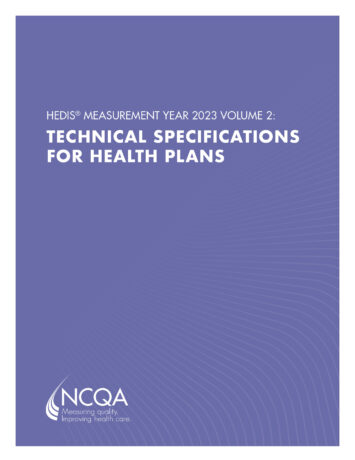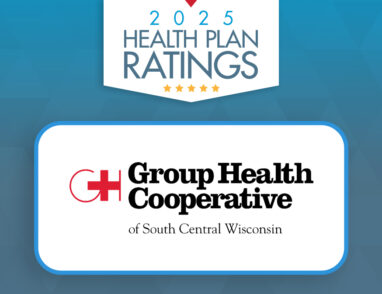HEDIS MY 2023: See What’s New, What’s Changed and What’s Retired
August 1, 2022 · NCQA Communications
 Every year, NCQA updates and releases measures in the Healthcare Effectiveness Data and Information Set (HEDIS®). This process ensures that they remain relevant and feasible for implementation. We don’t take HEDIS updates and changes lightly: Measure development and major updates follow a rigorous process that includes a public comment period and input from experts and stakeholders.
Every year, NCQA updates and releases measures in the Healthcare Effectiveness Data and Information Set (HEDIS®). This process ensures that they remain relevant and feasible for implementation. We don’t take HEDIS updates and changes lightly: Measure development and major updates follow a rigorous process that includes a public comment period and input from experts and stakeholders.
For MY 2023, HEDIS added five new measures, retired five measures, substantially changed a measure and made small changes across multiple measures. With these changes, NCQA also continued the transition to Electronic Clinical Data Systems (ECDS) reporting.
New HEDIS Measures
The newest additions to HEDIS address pediatric dental care, safety and appropriateness, diabetic care and social needs screenings and interventions.
- Oral Evaluation, Dental Services (OED)*. Medicaid members under 21 years of age who received a comprehensive or periodic oral evaluation with a dental provider.
Intent: Good oral health is a vital component of a child’s overall health, and oral examinations are important to prevent disease, reverse disease processes, prevent progression of caries and reduce incidence of future lesions. This measure will allow plans to understand if their pediatric members are receiving dental care and to work towards improving access and utilization of dental evaluations.
- Topical Fluoride for Children (TFC)*. Medicaid members 1-4 years of age who received at least two fluoride varnish applications.
Intent: Dental caries is the most common chronic disease in children in the United States. Topical fluoride plays an important role in preventing tooth decay. This measure will allow plans to understand if their pediatric members are receiving fluoride varnish applications and to promote fluoride varnish treatments for their younger members.
- Deprescribing of Benzodiazepines in Older Adults (DBO) **. Medicare members 67 years of age and older who were dispensed benzodiazepines who achieved a ≥20% decrease reduction in benzodiazepine dose.
Intent: The 2019 American Geriatrics Society Beers Criteria recommend that benzodiazepines be avoided in older adults. Clinical guidelines recommend deprescribing benzodiazepines slowly and safely, rather than stopping use immediately, to minimize withdrawal symptoms and improve patient outcomes. With this deprescribing measure, there is an opportunity to promote harm reduction by assessing progress in appropriately reducing benzodiazepine use in the older adult population.
- Emergency Department Visits for Hypoglycemia in Older Adults with Diabetes (EDH). For Medicare members 67 years of age and older with diabetes (types 1 and 2), the risk-adjusted ratio of observed to expected emergency department (ED) visits for hypoglycemia:
- For all members 67 and older with diabetes (types 1 and 2) the risk-adjusted ratio of O/E ED visits for hypoglycemia during the measurement year, stratified by dual eligibility.
- For a subset of members 67 and older with diabetes (types 1 and 2) who had at least one dispensing event of insulin within each 6-month treatment period from July 1 of the year prior to the measurement year through December 31 of the measurement year, the risk-adjusted ratio of O/E ED visits for hypoglycemia, stratified by dual eligibility.
Intent: Older adults are more likely to experience severe hypoglycemia (low blood sugar), leading to fall-related events and fractures, increased risk of cardiovascular events and cognitive decline. Clinical practice guidelines for the treatment of older adults with diabetes emphasize prevention of hypoglycemia and encourage avoidance of intensive glycemic control. Health plans have an opportunity to identify their older patients with diabetes who are at highest risk of hypoglycemia and to implement appropriate interventions to prevent it.
- Social Need Screening and Intervention (SNS-E). Members who were screened, using prespecified instruments, at least once during the measurement period for unmet food, housing and transportation needs, and received a corresponding intervention if they screened positive.
- Food Screening. Members who were screened for food insecurity.
- Food Intervention. Members who received a corresponding intervention within 1 month of screening positive for food insecurity.
- Housing Screening. Members who were screened for housing instability, homelessness or housing inadequacy.
- Housing Intervention. Members who received a corresponding intervention within 1 month of screening positive for housing instability, homelessness or housing inadequacy.
- Transportation Screening. Members who were screened for transportation insecurity.
- Transportation Intervention. Members who received a corresponding intervention within 1 month of screening positive for transportation insecurity.Intent: NCQA developed this measure as part of an organization-wide effort to advance health equity and encourage health plans to assess and address the food, housing and transportation needs of their patient populations. Health plans can identify specific needs and connect members with the resources necessary to address unmet social needs.
Changes to Existing HEDIS Measures
- Adult Immunization Status (AIS-E). NCQA revised this measure to align with the new pneumococcal vaccination guidelines released by the Advisory Committee on Immunization Practices. NCQA also added stratifications for age and race and ethnicity.
Cross-Cutting Topics
- Race/Ethnicity Stratification. NCQA is continuing its work to identify and reduce disparities in care. NCQA introduced race and ethnicity stratifications to eight additional HEDIS measures: Immunizations for Adolescents, Asthma Medication Ratio, Follow-Up After Emergency Department Visit for Substance Use, Pharmacotherapy for Opioid Use Disorder, Initiation and Engagement of Substance Use Disorder Treatment, Well-Child Visits in the First 30 Months of Life, Breast Cancer Screening, Adult Immunization Status. NCQA plans to continue expanding the race and ethnicity stratifications to HEDIS measures over the next several years to help identify disparities in care among patient populations. This effort continues to build on NCQA’s existing work dedicated to the advancing of health equity in data and quality measurement. To learn more about what NCQA is doing on this important topic click here.
- Gender Affirming Approaches to Measurement. To ensure that HEDIS measures appropriately acknowledge and affirm member gender identity, NCQA has revised measures which reference pregnancy or deliveries to remove the limitation to women. This change does not impact the intent or value sets of impacted measures, but simply acknowledges that pregnancy and childbirth are not experienced exclusively by individuals who identify as women. This change will reduce the likelihood of transgender members are inadvertently excluded or inappropriately included in a measure due to gender identity. Moving forward, NCQA intends to explore additional opportunities to transform HEDIS measures to be more inclusive and affirming of sexual and gender minority members.
- Optional exclusions are now required exclusions. For consistency across measure reporting programs, and with digital measures, all optional exclusions will become required exclusions beginning in MY 2023.
Electronic Clinical Data Systems (ECDS) Reporting
- NCQA will allow voluntary ECDS reporting for the Cervical Cancer Screening measure.
- This year NCQA retired the administrative-only reporting method for the Breast Cancer Screening measure; only the ECDS reporting method will be used for this measure.
Click here for information regarding the transitions to ECDS reporting.
Retirement
NCQA is retiring the following measures:
- Annual Dental Visit (ADV). This measure focused on access to dental care, rather than quality of dental care. This measure was replaced by the Oral Evaluation, Dental Services and Topical Fluoride for Children measures for MY 2023.
- Frequency of Selected Procedures (FSP). This measure summarized the frequency of select clinical procedures. During a recent review it was found that this measure had low utility and was burdensome for plans to report. The measure’s validity was also questioned due to the number of stratifications that contribute to small sizes for individual reporting categories.
- Flu Vaccinations for Adults Ages 18–64 (FVA), Flu Vaccinations for Adults Ages 65 and Older (FVO), Pneumococcal Vaccination Status for Older Adults (PNU). These CAHPS Health Survey measures have been retired from HEDIS. The expansion of the age range in the Adult Immunization Status measure will ensure that the clinical data regarding vaccination status is captured across all age groups that had been represented in these measures.
For more information, refer to the full measure specifications in HEDIS MY 2023 Volume 2: Technical Specifications for Health Plans and/or HEDIS MY 2023 Digital Measures Bundle. HEDIS publications are available as electronic publications. NCQA invites you to join HEDIS Users Group for inside information on HEDIS development and future directions. To order publications, call 888-275-7585 or visit the NCQA Publications website.
* This measure has been included in and/or adapted for HEDIS with the permission of the Dental Quality Alliance (DQA) and American Dental Association (ADA). This measure is included in the Medicaid Child Core Set. © 2022 DQA on behalf of ADA, all rights reserved.
**This measure was initially included in HEDIS MY 2022, but was removed from the Volume 2 specifications during the MY 2022 Technical Update release. It was updated to account for members achieving 100% discontinuation without intermediate taper in the measure numerator. This is a first-year measure for MY 2023.







